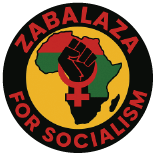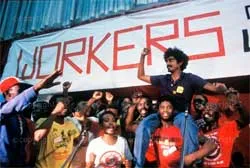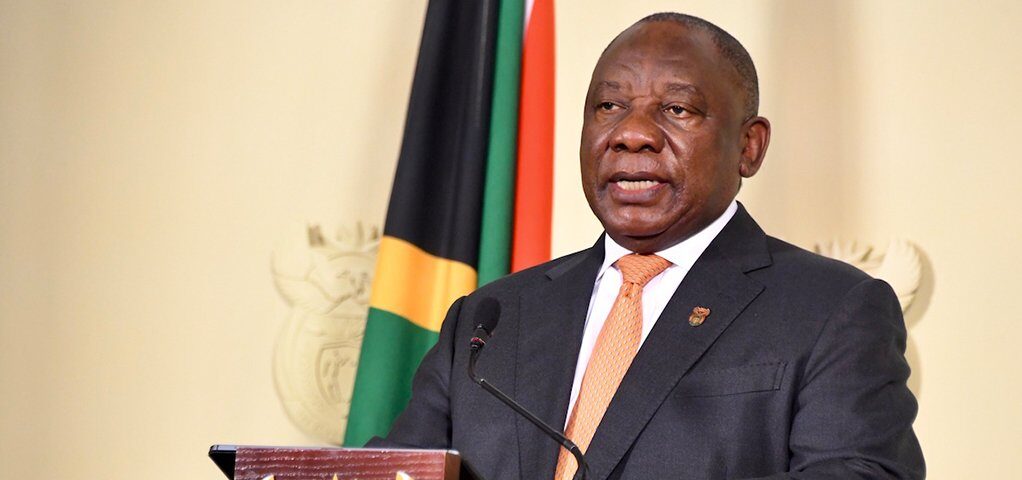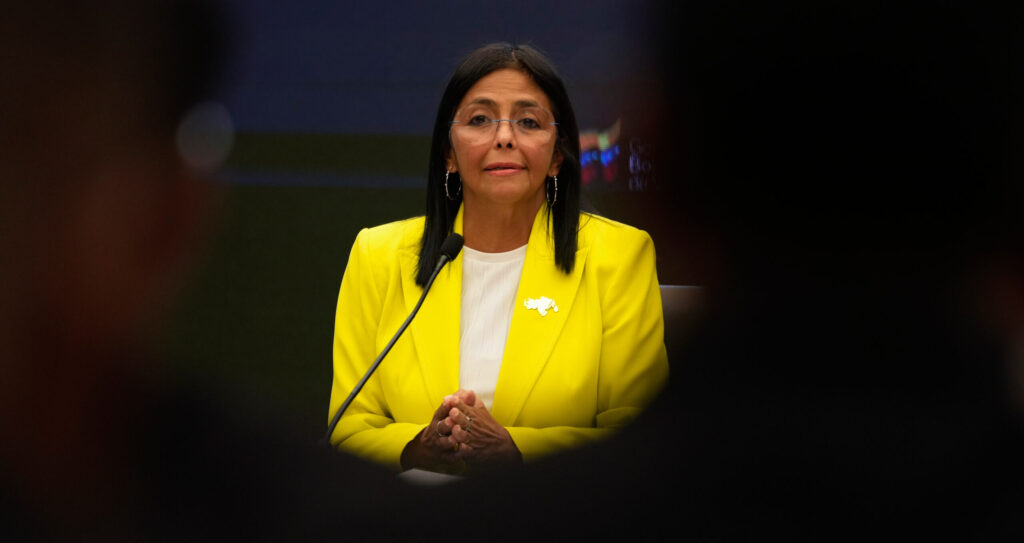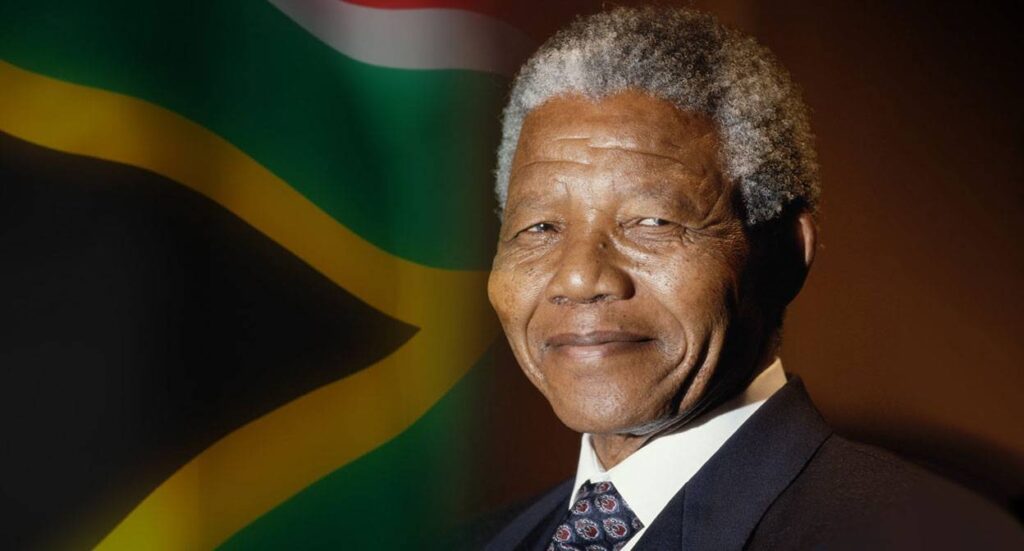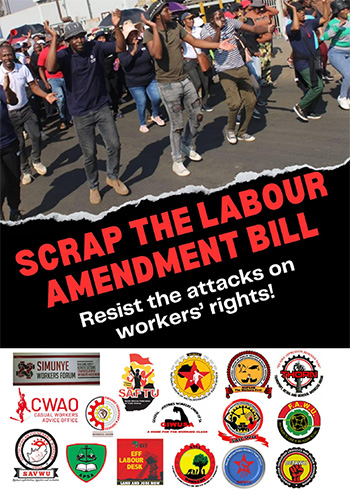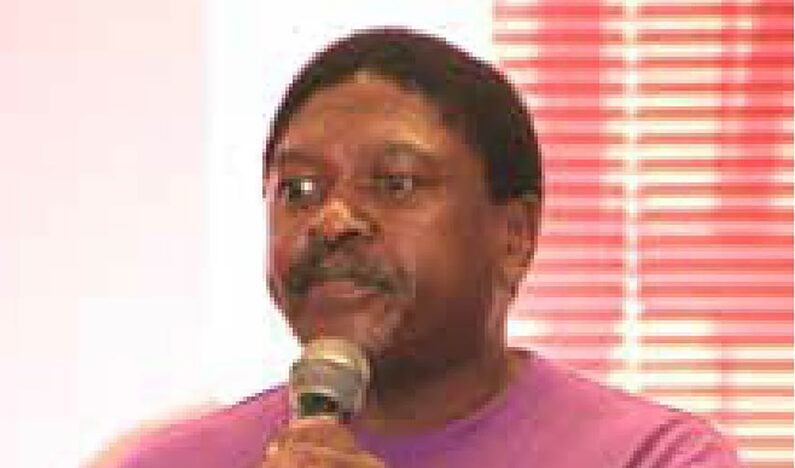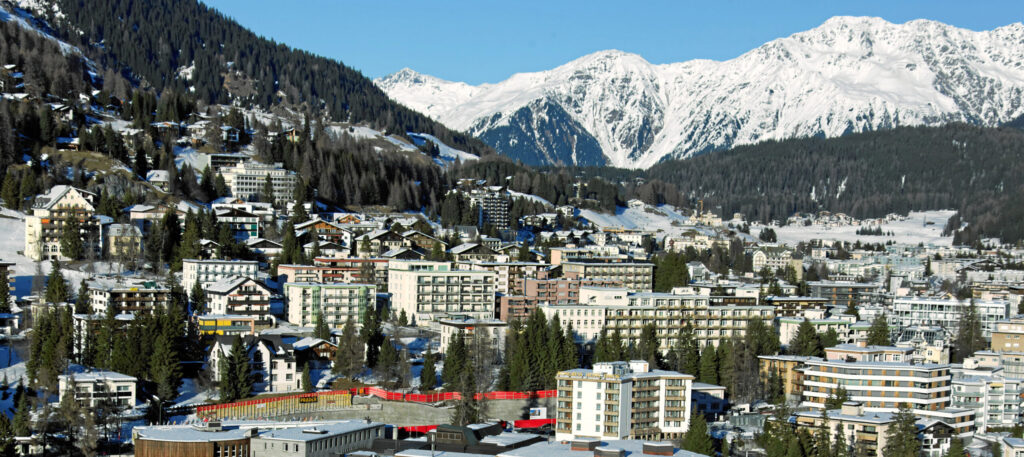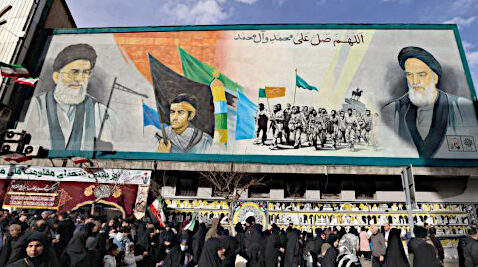The disappearing bridge
Thirty-one years into democracy, South Africa is in deep crisis. Unemployment on the expanded definition is catastrophic, poverty is entrenched and public services are dysfunctional.
Instead of dignity, justice and equality, the majority experience despair, insecurity and hunger.
Beneath this lies another truth: the widening social gap between leaders and the working class. If left unchallenged, this gap will blunt our movements, empower conservative forces and open the door to fascism and dictatorship.
From Chiawelo to the suburbs – the changing lives of leaders
In the 1980s, Cyril Ramaphosa lived in the townships, in Chiawelo, Soweto, like every shop steward and union leader of that generation. Leaders then shared the daily reality of the poor: police raids, overcrowded classrooms, raw sewage, electricity cut-offs, gang violence. Their authority came from authenticity.
1994 changed that. Apartheid barriers fell and black professionals entered spaces once reserved for whites — boardrooms, government offices, executive posts. This was genuine progress.
But militants who once fought oppression from the townships were absorbed into corporate boardrooms, state institutions and managerial roles. For the most part, leaders with well-paying jobs in the state, as well as in unions and NGOs, moved out of the townships that were gradually desegregating. The organic link between leadership and working-class life weakened.
In the 1970s, up to the dawn of democracy, union membership was largely restricted to blue-collar ranks and leadership was an exclusive preserve of the rank-and-file proletariat.
With democracy and the expansion of organising into the public sector, members in junior managerial positions joined and over time, even more senior personnel became members and leaders.
While this was in many respects a positive development, it also imported conservatism into union leadership. The least-paid workers, without bonds or car loans, have little to lose in a protracted strike. The opposite is true for those in more senior positions, often locked into home loans and car repayments, whose material conditions make them more risk-averse and less militant.
A distorted transformation
We do not condemn the emergence of a black middle class or the promotion of black professionals. These were long overdue. What we condemn is the distorted transformation that accompanied it:
- Unemployment on the expanded definition stands at 42.9% (Q2 2025, StatsSA). Among black Africans, it is even higher, at 47.5%, compared with just 10.3% for whites;
- Black women face the harshest reality, with an expanded unemployment rate of 52% — more than half without work;
- Youth unemployment is catastrophic: under the expanded definition, more than six in 10 black young people cannot find jobs;
- Inequality entrenched: South Africa remains the most unequal society in the world, with a Gini coefficient above 0.67 (World Bank);
- Poverty and hunger: more than 20 million people experience food insecurity daily, with 2.1 million households reporting hunger (StatsSA); and
- Public services collapsing: police stations without vehicles, clinics without medicines, overcrowded schools, dysfunctional Home Affairs and prisons unfit for dignity.
Beyond the statistics, the human cost is harrowing. Children have been reported dying of hunger in public hospitals. Mothers skip meals so their children can eat. Families boil weeds to stave off hunger. This is the daily reality for millions and it exposes the brutality of a system that allows supermarkets to post record profits while people starve.
This is transformation without liberation — a process that uplifts a minority while leaving millions, especially black women and youth, excluded. It is a transition of elites, not a transformation of society.
The media blackout and editor disconnect
The same social gap shapes the media. Many black editors once endured detention without trial and township repression. Today, they live in leafy suburbs and preside over newsrooms that black out working-class struggles:
- South Africa sees five major protests a day — more than 13,000 a year — led overwhelmingly by poor women and youth fighting for water, housing and services. Yet these protests are rarely reported unless they disrupt traffic, in which case they are reduced to traffic news;
- Abahlali baseMjondolo, which has survived 20 years of brutality at the hands of councillors and police, including assassinations and arson, is virtually erased. Even its 20th anniversary this month was blacked out (only GroundUp and Peoples Dispatch covered the thousands of celebrants who went to Durban);
- Workers’ marches against Shoprite and food monopolies, protesting against profiteering while millions go hungry, are dismissed as irrelevant. Meanwhile, Shoprite’s profits — R7.5-billion in 2025, over R20-million a day — are celebrated as a success. Its CEO’s R83-million salary is normalised; and
- Even solidarity demonstrations for Palestine are distorted. Protest against genocide is routinely framed as requiring a “balancing voice” — giving Zionist apologists for ethnic cleansing a right of reply, as if those defending genocide deserve equal moral standing with those resisting it.
The result is a warped public consciousness: the struggles of the poor are erased, while the battles of the elites dominate headlines. Hunger, evictions and genocide are invisible; corruption scandals and corporate profits are treated as the nation’s true story.
This erasure is compounded by the media’s pro-Western bias. Democracy and freedom are often conflated with Western approval and South Africa is implicitly pressured to behave as a vassal state of the West — as Kenya and others have been reduced to. The assumption that the West alone defines democracy is one of the most dangerous distortions of our time.
Conservatism rising, with warning bells
We must be nuanced. Not all unions have lost militancy — many remain vibrant and angry. Not all black middle-class professionals are conservative — many remain committed to justice.
But the warning signs are there. Material conditions shape consciousness. As leaders move further from the township, anger risks dissipating. As black professionals adapt to the suburbs and former Model C schools — still dominated by whites, still excluding African languages — neoliberal ideas harden. Capitalism becomes “common sense.” Efficiency trumps justice. Hunger is normalised.
This is not universal, but it is a trend we must ring alarm bells about.
Spatial development, gentrification and monopoly power
The most dangerous expression of this conservatism is in spatial development.
In Cape Town, black professionals cannot afford to live in the city centre. Luxury apartments rise while the poor are forced further to the periphery. Apartheid’s geography is reborn through the market.
In Johannesburg, disillusioned workers may be swayed to back Helen Zille. But a “clean city” under her leadership will mean:
- Evicting the poor from “hijacked buildings” without providing alternative housing;
- Driving informal traders from pavements, handing customers directly to monopoly retailers like Shoprite and Pick n Pay. What looks like order is in fact the expansion of corporate monopoly; and
- Gentrifying parts of the city, in the course of turning Johannesburg into a haven for the rich and white, while we can expect a graveyard of exclusion for the poor, just as Cape Town witnessed under her rule.
This is not urban renewal. It is social cleansing by design — making the poor invisible so that cities can be branded “world class.”
The middle class, working-class frustration and the Zille danger
In Johannesburg, the collapse of governance has created fertile ground for reaction. A hapless ANC mayor presides over a metro defined by potholes, blackouts (sometimes affecting even middle-class areas due to “load reduction” disconnections for everyone regardless of whether they have paid their bill), petty crime, failing water and sanitation and endless corruption scandals.
The middle class — fed up with inefficiency and failure — is increasingly pointing to Helen Zille and the DA as the “only solution”.
Their real interests lie in a united front with the poor and working people, but often their elitism and indeed sometimes racism prevent a social-change consciousness, leaving many concerned only about their particular home or neighbourhood’s interests.
But this frustration does not stop at the suburbs. Sections of the working class are also being influenced. Around dinner tables, in workplaces and in taxis, one hears dangerous refrains:
- “Apartheid was better”;
- Sehlare sa motho ke lekgowa — “the medicine of a black man is the white man”; and
- Former Bantustan leaders are rebranded as heroes, because in comparison to today’s collapsed towns like Mafikeng, Umthatha, Bisho and King William’s Town, their administrations are remembered as more functional.
This is the psychology of despair. Out of the total collapse of governance rises the illusion that the DA, with its talk of order and discipline, represents the only way out. But what this really means is opening the door for Helen Zille to govern Johannesburg — and to implement a “clean city” programme that will in practice mean evictions, exclusion and the systematic erasure of the poor.
Fascism through exclusion
This is how fascism grows: not with jackboots first, but with the quiet erasure of the poor,
- When selling on a pavement is criminalised, while supermarkets thrive;
- When hunger is ignored, but corporate profits are celebrated; and
- When “clean cities” mean cities without the poor.
This is the dialectic of conservatism: when anger is blunted, the call for order seduces. Fascism begins when efficiency replaces justice and exclusion is normalised as progress.
History is full of warnings. Benito Mussolini in Italy and Adolf Hitler in Germany rose to power not simply through brute force, but on the back of middle-class disillusionment. They promised order to shopkeepers, professionals and civil servants who were terrified of falling into poverty. They channelled resentment away from the ruling class and against the working class.
The first targets of fascism were always workers and their unions. Mussolini smashed Italy’s militant strikes; Hitler outlawed German trade unions and threw their leaders into concentration camps.
Both branded unions as “enemies of progress”, “obstacles to efficiency” and “threats to national unity”. What began as promises of clean streets and efficient government ended in dictatorship, war and genocide.
Workers hoodwinked into supporting fascist projects will discover too late the price of their illusions. Insourcing gains will be reversed, job losses glorified as fixing “bloated” departments, labour law protections gutted to appease investors, dismissals made easier and strikes rendered almost impossible.
Slowly, collective bargaining will be transformed into collective begging.
The same patterns are playing out now in the society faced by the most serious fascist government of our time: the United States. South Africa must not ignore these lessons.
When politicians and media frame informal traders, protesting communities and militant unions as the problem, they are walking the same road. The language of “order” and “progress” can very quickly become the language of repression.
The crisis of hope and the illusion of strongmen
The crisis is not only material; it is political and moral. The collapse of trust in political elites has created a dangerous vacuum. Already, two-thirds of South Africans did not vote in 2024. Millions see elections as meaningless rituals that change nothing. The weakening of the trade union movement has worsened the vacuum.
This disillusionment is reflected in how society responds to “strongmen”:
- In South Africa, General Nhlanhla Mkhwanazi deserves the praise he has received. He has spoken out boldly against what appears to be State Capture 2, refusing to be silenced in the face of criminal networks and political interference. For many, he represents the integrity, courage and patriotism that the political elite has abandoned; and
- Across Africa, military coups in Burkina Faso, Mali and Niger have been celebrated by millions. Figures like Ibrahim Traoré in Burkina Faso are hailed as liberators for toppling French imperialist stooges who betrayed their nations.
We must recognise why this is happening. It is not simply because people yearn for soldiers. It is because corrupt civilian politicians have handed sovereignty back to imperialism, looted their nations and deepened poverty.
As a result, democracy itself is in retreat — not because people hate democracy, but because democracy as practised has meant betrayal. For more and more citizens, coups appear to be the only solution to break with elites who have stolen democracy for themselves.
But history teaches us a sobering truth: military coups, however popular at first, almost always end in authoritarianism, repression and the death of democracy. South Africa must heed this lesson before it is too late.
Rebuilding the bridge
The only antidote is to rebuild the bridge between leaders and the working class:
- Leaders must re-root themselves in working-class communities;
- Unions must rekindle militancy around hunger, unemployment, collapsing services and informal workers;
- Informal traders must be defended as part of the working class, not criminalised;
- Monopoly profiteering must be exposed and resisted;
- Media distortions must be challenged — hunger, protest and solidarity are news, not nuisances; and
- Above all, democracy must be reclaimed as a tool of liberation, not surrendered to generals or technocrats.
Around the world, there are examples of renewal that we can learn from: Zohran Mamdani’s movement in New York, Jeremy Corbyn’s attempt in the UK to root a party in social movements, Lula’s project in Brazil linking unions, movements and a workers’ party. These experiences show that alternatives are possible and that optimism of the will can grow from collective organising.
The choice before us
We do not condemn the emergence of a black middle class or the advancement of black professionals. We celebrate the breaking of apartheid’s ceilings. What we condemn is false transformation: one that delivers collapsing hospitals, failing schools, dysfunctional police and mass unemployment, while uplifting only a few.
We must sound the alarm. Conservatism, distorted transformation, spatial cleansing, the collapse of faith in democracy and dangerous nostalgia are the fertile soil in which fascism grows. Unless we act, we risk a future where workers cheer their own eviction, cities are cleansed of the poor and generals are hailed as saviours.
History has shown us the price of such illusions. We dare not repeat it.
The choice is stark: either we rebuild the bridge between leadership and the working class, or we sleepwalk into a democracy of exclusion, paving the way for dictatorship.
